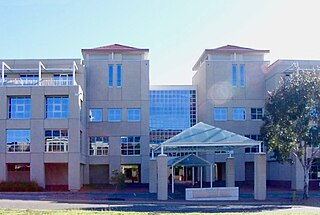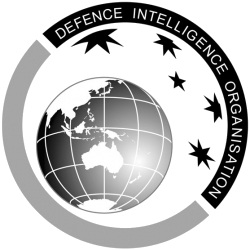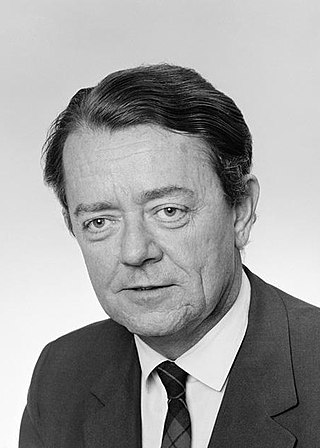Related Research Articles
The Australian Security Intelligence Organisation is Australia's national security agency responsible for the protection of the country and its citizens from espionage, sabotage, acts of foreign interference, politically motivated violence, attacks on the Australian defence system, and terrorism. ASIO is part of the Australian Intelligence Community and is comparable to the FBI (US) and MI5 (UK).

The Australian Secret Intelligence Service is the foreign intelligence agency of Australia, tasked with the covert collection of information overseas through personal contacts and other means of human intelligence. It is part of the Australian Intelligence Community and is also responsible for counter-intelligence and liaising with the intelligence agencies of other countries such as the NZSIS. ASIS was formed in 1952 but its existence remained secret within much of the government until 1972. ASIS is comparable to the American CIA and the British MI6.
The Australian Signals Directorate (ASD), formerly the Defence Signals Directorate (DSD), is the federal statutory agency in the Australian Government responsible for foreign signals intelligence, support to military operations, cyber warfare, and information security. ASD is part of the Australian Intelligence Community. ASD's role within UKUSA Agreement is to monitor signals intelligence ("SIGINT") in South and East Asia. The ASD also houses the Australian Cyber Security Centre.

The Office of National Assessments (ONA) was an Australian statutory intelligence agency established by the Office of National Assessments Act 1977 as an independent statutory body directly accountable to the Prime Minister of Australia as a portfolio agency of the Department of the Prime Minister and Cabinet. ONA provided all-source assessments on international political, strategic and economic developments to the Prime Minister and the National Security Committee of Cabinet. ONA also played a coordination role in the Australian Intelligence Community through evaluating foreign intelligence products, convening the National Intelligence Coordination Committee, and developing relationships with intelligence agencies around the world.

The United Kingdom – United States of America Agreement is a multilateral agreement for cooperation in signals intelligence between Australia, Canada, New Zealand, the United Kingdom, and the United States. The alliance of intelligence operations is also known as the Five Eyes. In classification markings this is abbreviated as FVEY, with the individual countries being abbreviated as AUS, CAN, NZL, GBR, and USA, respectively.

The Defence Intelligence Organisation (DIO) is an Australian government military intelligence agency responsible for strategic intelligence and technical intelligence assessments, advising defence and government decision-making on national security and international security issues, and the planning and conduct of Australian Defence Force operations. The DIO does not collect intelligence or conduct covert action, but works on defence economics, transnational terrorism, and WMD.
The Intelligence Services Act 2001 (ISA) is an Act of the Parliament of Australia, which made significant changes to the Australian Intelligence Community (AIC). The bill was introduced into Parliament on 27 June 2001 by then Minister for Foreign Affairs Alexander Downer. The Act was passed by Parliament on 29 September 2001 and came into effect on 29 October 2001.
The Parliamentary Joint Committee on Intelligence and Security (PJCIS) is a joint committee of the Parliament of Australia which oversees Australia's primary agencies of the Australian Intelligence Community: Australian Security Intelligence Organisation (ASIO), the Australian Secret Intelligence Service (ASIS), the Australian Signals Directorate (ASD), the Defence Intelligence Organisation (DIO), the Australian Geospatial-Intelligence Organisation (DIGO), and the Office of National Assessments (ONA).
The Australian Intelligence Community (AIC) and the National Intelligence Community (NIC) or National Security Community of the Australian Government are the collectives of statutory intelligence agencies, policy departments, and other government agencies concerned with protecting and advancing the national security and national interests of the Commonwealth of Australia. The intelligence and security agencies of the Australian Government have evolved since the Second World War and the Cold War and saw transformation and expansion during the Global War on Terrorism with military deployments in Afghanistan, Iraq and against ISIS in Syria. Key international and national security issues for the Australian Intelligence Community include terrorism and violent extremism, cybersecurity, transnational crime, the rise of China, and Pacific regional security.
The Inspector-General of Intelligence and Security (IGIS) is an independent statutory office holder in the Commonwealth of Australia responsible for reviewing the activities of the six intelligence agencies under IGIS jurisdiction. With own motion powers in addition to considering complaints or requests from ministers, IGIS is a key element of the accountability regime for Australia’s intelligence and security agencies.
The Joint Intelligence Organisation (JIO) was an Australian government intelligence agency that existed between 1969 and 1990 and which was responsible for the analysis of defence and foreign intelligence.

John Murray Wheeldon was an Australian politician and journalist. He was a member of the Australian Labor Party (ALP) and a senator for Western Australia from 1965 to 1981. He held ministerial office in the Whitlam government as Minister for Repatriation and Compensation (1974–1975) and Minister for Social Security (1975). He was known for his views on Australian foreign policy and after leaving politics became an editorial writer for The Australian.

Robert Marsden Hope, was a Justice of the New South Wales Court of Appeal and Royal Commissioner on three separate occasions, most notably the Royal Commission on Intelligence and Security. As a judge Hope was known for his legal positivism and as a royal commissioner he "instilled a sense of impartiality".
The Combe–Ivanov affair was an Australian political scandal of 1983. A Soviet diplomat and KGB spy, Valery Ivanov, was expelled after he was found to have compromised a senior Australian Labor Party (ALP) figure, David Combe. The affair also claimed the political scalp of a minister, Mick Young, and resulted in a Royal Commission being established under Justice Robert Hope to review Australia's security and intelligence agencies.
The Murphy raids on the offices of the Australian Security Intelligence Organisation (ASIO) occurred on 16 March 1973. The purpose of the raids, instigated by Attorney-General Lionel Murphy, was to obtain terrorism-related information that the ASIO was accused of withholding. Murphy was operating without any permission from the Prime Minister at the time, Gough Whitlam or the Cabinet. No warrants were obtained from the judiciary.
Peter Robert Woolnough Barbour was an Australian intelligence officer and diplomat. He was also the Director-General of Security leading the Australian Security Intelligence Organisation (ASIO) from 1970 to 1975.

The National Security Committee (NSC), also known as the National Security Committee of Cabinet, is the peak decision-making body for national security and major foreign policy matters in the Australian Government. It is a committee of the Cabinet of Australia, though decisions of the NSC do not require the endorsement of the Cabinet itself.

The National Intelligence Coordination Committee (NICC) is a peak intergovernmental officials-level body of the Government of Australia responsible for the development and co-ordination of the Australian Intelligence Community in accordance with the National Security Committee of Cabinet. The NICC is chaired by the Director-General of the Office of National Intelligence.
The Office of National Intelligence (ONI) is an Australian statutory intelligence agency responsible for advising the Prime Minister and National Security Committee, the production of all-source intelligence assessments, and the strategic development and enterprise management of the National Intelligence Community. The ONI is directly accountable to the Prime Minister of Australia as a portfolio agency of the Department of the Prime Minister and Cabinet.
CIA involvement in the Whitlam dismissal is an allegation that the U.S. Central Intelligence Agency (CIA) was involved in the 1975 Australian constitutional crisis, which culminated in the dismissal of Prime Minister Gough Whitlam.
References
- ↑ Coventry, CJ. Origins of the Royal Commission on Intelligence and Security (2018: MA thesis submitted at UNSW) https://hcommons.org/deposits/item/hc:21763/
- ↑ Coventry, CJ. Origins of the Royal Commission, Pt. 1.
- ↑ Coventry, CJ. Origins of the Royal Commission, Chp. 6.
- 1 2 3 "Australia's Cold War spooks revealed". Television New Zealand . Retrieved 30 January 2014.
- ↑ Coventry, CJ. Origins of the Royal Commission, Chp. 6.
- ↑ Coventry, CJ. Origins of the Royal Commission, 119.
- ↑ Coventry, CJ. Origins of the Royal Commission, 157-58.
- ↑ Coventry, CJ. Origins of the Royal Commission, Chp. 7.
- ↑ Coventry, CJ. Origins of the Royal Commission, 167-68.
- ↑ Coventry, CJ. Origins of the Royal Commission, 170.
- ↑ Coventry, CJ. Origins of the Royal Commission, 158.
- ↑ Coventry, CJ. Origins of the Royal Commission, Chp. 8.
- ↑ Coventry, CJ. Origins of the Royal Commission, 179.
- ↑ "Robert Marsden Hope and Australian Public Policy" (PDF). Office of National Assessments. Archived from the original (PDF) on 26 January 2014. Retrieved 30 January 2014.
- ↑ Coventry, CJ. Origins of the Royal Commission, 171.
- ↑ Coventry, CJ. Origins of the Royal Commission, 182-183.
- ↑ Parliament of Australia Bills Digest No. 11 of 2001–02 Archived 6 May 2009 at the Wayback Machine of Intelligence Services Act 2001. This document contains numerous references upon which this article is based.
- ↑ National Archives of Australia Records of the Royal Commission on Intelligence and Security
- ↑ Gyngell, A. and Wesley, M. (2003) Making Australian Foreign Policy. Cambridge, England: Cambridge University Press. (page 146)
- ↑ Office of National Assessments History of the ONA
- ↑ Mr Malcolm Fraser, 'Royal Commission on Intelligence and Security', Ministerial Statement, House of Representatives, Debates, 25 October 1977, p. 2339
- ↑ Coventry, CJ. Origins of the Royal Commission, 184.
- ↑ Coventry, CJ. Origins of the Royal Commission, 184.
- ↑ Coventry, CJ. Origins of the Royal Commission, 127.
- ↑ Coventry, CJ. Origins of the Royal Commission, 185.
- ↑ Coventry, CJ. Origins of the Royal Commission, 186.
- ↑ Dibb, Paul (31 May 2008). "How spies won turf war". The Australian . Retrieved 30 January 2014.